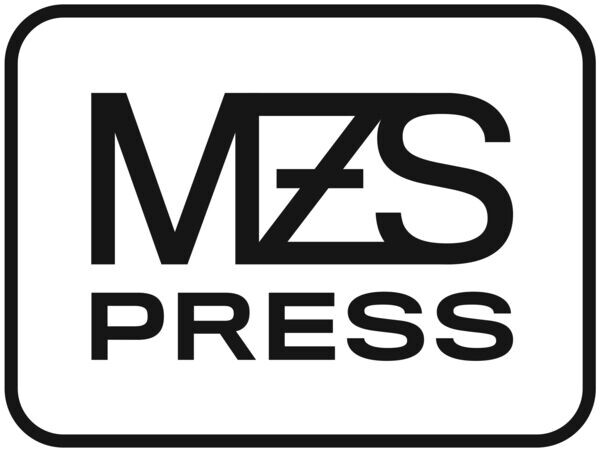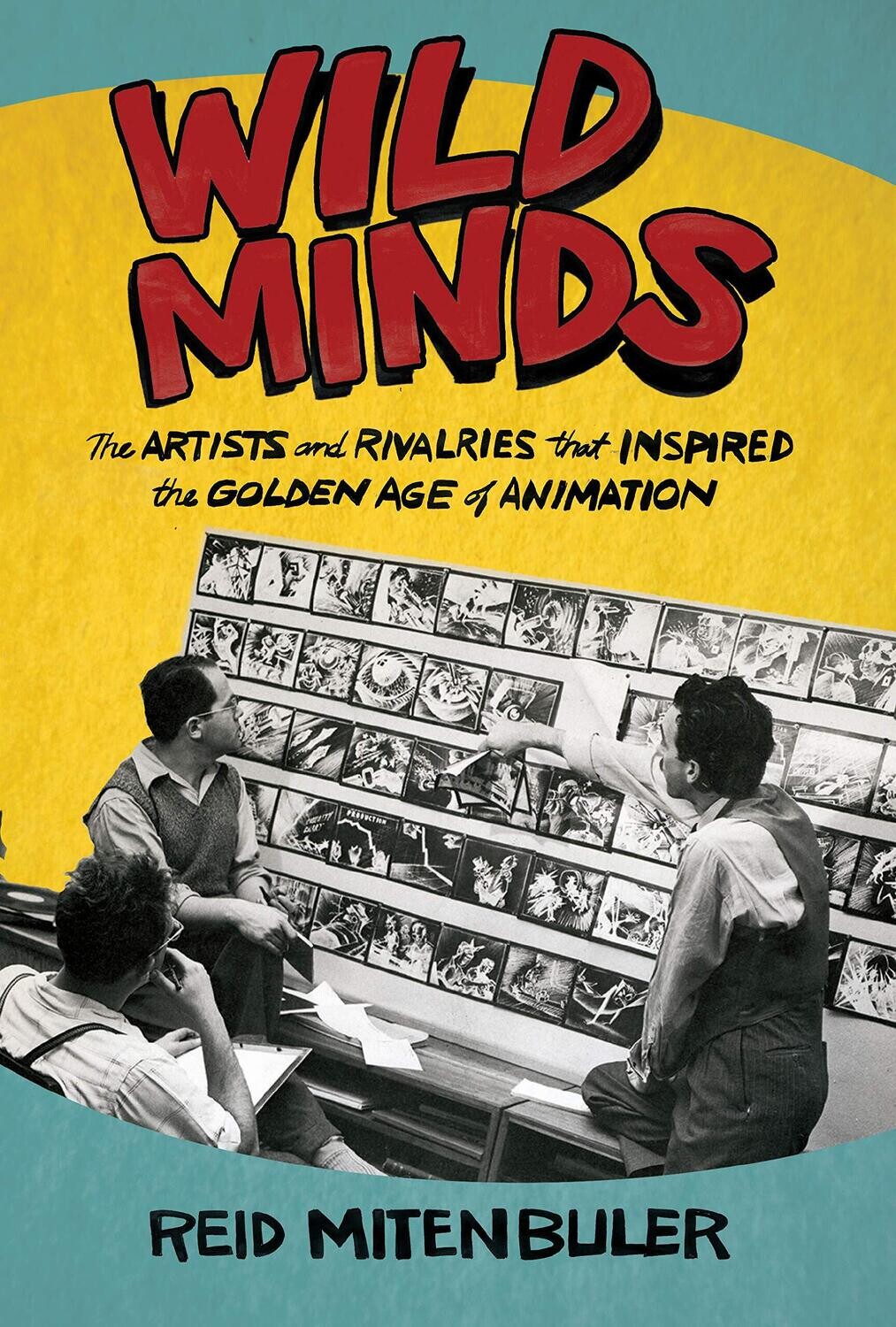

The Arts Bookstore of the Internet
Created by Matt Zoller Seitz
Directed by Judith Carter
“If you only read the books that everyone else is reading, you can only think what everyone else is thinking.”
Haruki Murakami
Photo by Justin Campbell on Unsplash
Wild Minds: The Artists and Rivalries That Inspired the Golden Age of Animation (Hardcover, NEW)
In 1911, famed cartoonist Winsor McCay debuted one of the first animated cartoons, based on his sophisticated newspaper strip “Little Nemo in Slumberland,” itself inspired by Freud’s recent research on dreams. McCay is largely forgotten today, but he unleashed an art form, and the creative energy of artists from Otto Messmer and Max Fleischer to Walt Disney and Warner Bros.’ Chuck Jones. Their origin stories, rivalries, and sheer genius, as Reid Mitenbuler skillfully relates, were as colorful and subversive as their creations―from Felix the Cat to Bugs Bunny to feature films such as Fantasia―which became an integral part and reflection of American culture over the next five decades.
Pre-television, animated cartoons were aimed squarely at adults; comic preludes to movies, they were often “little hand grenades of social and political satire.” Early Betty Boop cartoons included nudity; Popeye stories contained sly references to the injustices of unchecked capitalism. “During its first half-century,” Mitenbuler writes, “animation was an important part of the culture wars about free speech, censorship, the appropriate boundaries of humor, and the influence of art and media on society.” During WWII it also played a significant role in propaganda. The Golden Age of animation ended with the advent of television, when cartoons were sanitized to appeal to children and help advertisers sell sugary breakfast cereals.
Wild Minds is an ode to our colorful past and to the creative energy that later inspired The Simpsons, South Park, and BoJack Horseman.
Review
Praise for Wild Minds:
“[A] lively history of the first half-century of animation . . . In his prologue, Mitenbuler suggests the story he’s about to tell will go from rude to rarefied, but one of the most fascinating things about the history he recounts is that animation, like so much of American culture, continually scrambled all sorts of categories and expectations. The arc of Wild Minds is appropriately weird, full of high-flown aspirations and zany anecdotes.”—Jennifer Szalai, New York Times
“Wild Minds assembles its history with love and a sense of occasion . . . The book’s governing idea lies in its heroes’ collective intuition that animated films could be a vehicle for grownup expression—erotic, political, and even scientific—rather than the trailing diminutive form they mostly became . . . All art aspires to the condition of music, a wise man said once, and perhaps all cultural history aspires to the condition of a cartoon: a seeming fluidity of movement, made up of countless small stops and starts.”—Adam Gopnik, New Yorker
“Wild Minds is a colorful chronology of the first 50 years of American animated film. Juicy tales abound about the films and the wildly imaginative people who made them. Mr. Mitenbuler tells their stories with relish and clarity.”—John Canemaker, Wall Street Journal
“Superficially, Wild Minds is about the origins of Mickey Mouse, Popeye the Sailor and Bugs Bunny cartoons. But Mitenbuler’s real target is a quintessentially American story of daring ambition, personal reinvention and the eternal tug-of-war of between art and business . . . While animation would rise again to find its place in our own era of the long-running Simpsons and the glorious works of Hayao Miyazaki, Mitenbuler’s book is a gem for anyone wanting to understand animation’s origin story.”—Adam Frank, NPR
“A fast-moving account of the cartoonists, writers, inventors, hucksters, and hopeful moguls who constructed the firmament of American animation and filled it with constellations of talking mice, rabbits, birds, and pigs that have become more nameable than any actual stars in the sky . . . A highly readable overview . . . Generous with fun facts.”—Michael Tisserand, New York Times Book Review
“Film buffs will delight in this exploration of the golden age of animation. Surveying everything from Betty Boop to Popeye, author Reid Mitenbuler argues that a number of the medium’s early classics were bolder and more daring than today’s animated movies. He paints a delightfully full picture of the artform and its artists.”—Christian Science Monitor
“Mitenbuler shows just how renegade the pioneers of animation were . . . A journey into how animation became cultural insurgency.”—Scott Thomas Anderson, San Francisco Chronicle
“Entertaining history of early cartoon animation. Demonstrating impassioned research and technical know-how, Mitenbuler presents a series of historical anecdotes that, sequenced together, bring to life one of the world’s most beloved art forms . . . The narrative crackles with captivating charm, adding color and nuance to a cast of familiar cartoon faces . . . Like a one-man animation department, [Mitenbuler] effortlessly renders both celluloid and background. A finely drawn history of a critical period in the history of animation.”—Kirkus Reviews (starred review)
“Journalist Mitenbuler casts the creators of animated cartoons as characters themselves in this rollicking history of the first 50 years of animation . . . In snappy prose, Mitenbuler writes a history rich with personalities. This Technicolor tour de force is impossible to put down.”—Publishers Weekly (starred review)
“While animation is often considered a children’s medium, its early days were filled with social commentary, sexuality, satire, and countless creative and financial battles . . . An entertaining and revealing look into the dawn of a revolutionary art form.”—Library Journal
“Wild Minds is a thoroughly captivating behind-the-scenes history of classic American animation, full of breezy stories of the great artists who went crazy making the brilliant cartoons we all know and love. A must-read for all fans of the medium.”—Matt Groening, creator of The Simpsons and Futurama
“If the twentieth century had its court painters, they were the cartoonists and animators employed by Walt Disney and other creative wizards of pop culture. In his engrossing, entertaining, and deeply researched Wild Minds, Reid Mitenbuler recreates the world of these classic animators—the largely unsung Holbeins and Van Dycks of the Magic Kingdom and at Warner Bros., Paramount, and smaller studios. There’s a direct evolutionary path, we come to realize, from the genius of Winsor McCay, a century ago, to the subversive tropes of South Park. The legacy of the animators is one we can’t escape—and don’t want to.”—Cullen Murphy, author of Cartoon County: My Father and His Friends in the Golden Age of Make-Believe
“In this absorbing history of animation, Reid Mitenbuler illuminates lives both deservedly familiar (Walt Disney, Max Fleischer, Chuck Jones) and tragically forgotten (Winsor McCay, Émile Cohl). The prose is terrific, the insights frequent, and the information fascinating. Mitenbuler deepens one’s understanding not only of his subject, but the world itself. It’s everything you want a nonfiction book to be.”—Tom Bissell, author of Creative Types and coauthor of The Disaster Artist
“An absolutely vital compendium covering all high points, low points, and pen points of the personalities who hijacked our pop culture—pioneering a now-dominant American industry, ultimately creating characters and films that have stood the test of time. A delightful read—like the cartoons themselves: buoyant, bouncy, and wonderfully entertaining.”—Jerry Beck, animation historian and author
About the Author
reidmitenbuler.com
@ReidMitenbuler
Product details
- Publisher : Atlantic Monthly Press (December 1, 2020)
- Language : English
- Hardcover : 432 pages
- ISBN-10 : 0802129382
- ISBN-13 : 978-0802129383
- Item Weight : 1.55 pounds
- Dimensions : 6.5 x 1.25 x 9.25 inches
About Our Store
MZS.Press is the online arts bookstore founded by author, critic, and filmmaker Matt Zoller Seitz and Directed by Judith Carter. It offers new, used, signed, collectible, and rare books on film, TV, music, photography, and the visual arts. The store was launched in 2019 on a different platform and has expanded to incorporate arts books published by MZSPress's private imprint: titles currently include Seitz's The Deadwood Bible: A Lie Agreed Upon and Dreams of Deadwood, about the HBO Western, and Walter Chaw's A Walter Hill Film.
Our deepest wish is to promote, encourage, and distribute work by small presses, academic presses, and individuals. Extraordinary work tends to get swallowed up on giant platforms like Amazon and Barnes & Noble. The titles featured here are personally selected by a group of curators and advisors, including Seitz and an array of critics, artists, journalists, educators, publishers, and arts mavens who are known for their ability to suss out what Seitz's jazz musician dad liked to call "the good sh*t."
In Honor of the greatest auteur of our time, Judith is using one of her favorite quotes by him.
"Every day, once a day, give yourself a present"
David Lynch (January 20, 1946-January 15, 2025)

About the Partners

Matt Zoller Seitz
Critic, Author, Filmmaker, MZS Press Creator
Matt Zoller Seitz is the Editor at Large and film critic of RogerEbert.com; Features Writer for New York Magazine and Vulture.com, Contributing Writer for D Magazine and Texas Highways as well as finalist for the Pulitzer Prize in criticism. His writing on film and TV has appeared in Sight and Sound, The New York Times, Salon.com, The New Republic and Rolling Stone. Seitz is the founder and original editor of the influential film blog The House Next Door, now a part of Slant Magazine.
Seitz has written, narrated, edited or produced over a hundred hours’ worth of video essays about cinema history and style for The Museum of the Moving Image, Salon.com and Vulture, among other outlets such as Texas Highways and AARP. His five-part 2009 video essay Wes Anderson: The Substance of Style was spun off into the hardcover book The Wes Anderson Collection. This book and its follow-up, The Wes Anderson Collection: Grand Budapest Hotel were New York Times bestsellers.
Other Seitz books include the New York Times bestsellers The Sopranos Sessions and Mad Men Carousel; TV (The Book), The Deadwood Bible: A Lie Agreed Upon, The Wes Anderson Collection: The French Dispatch and the new The Wes Anderson Collection: Asteroid City. He is also an interviewer, moderator, and film programmer who has curated and hosted film and TV presentations for the Museum of the Moving Image, IFC Center, San Francisco's Roxie Cinema, and other venues. In October 2024 he brought the legendary filmmaker Oliver Stone back to Dallas for a historic return to the city and the Texas Theatre, considered the biggest film event of Dallas in 2024 by Dallas Observer!
Judith Carter was in the Upscale and Luxury Hospitality Industry for most of her life. In 2004 she had a beautiful baby boy with Special Needs and put the pause on her career until 2017 to dedicate herself to him and then others, assisting and volunteering as a legal advocate ensuring the best medical care, evaluations and educations for Special Needs children and their families.
Matt and Judith were family friends for over 20 years. She was there with her family in support when his wife Jen passed away suddenly in 2006. Then just 6 weeks later while Matt was in Dallas; he and his Father, Dave, and Step-Mother, Genie, were there as support, when Judith was alone and her son received the first of many diagnoses that changed the trajectory of their lives. So it made sense in the turbulent year of 2020, Matt asked Judith to take over running the online store that has become MZS.press. The rest as they say is, "Their"-story.
